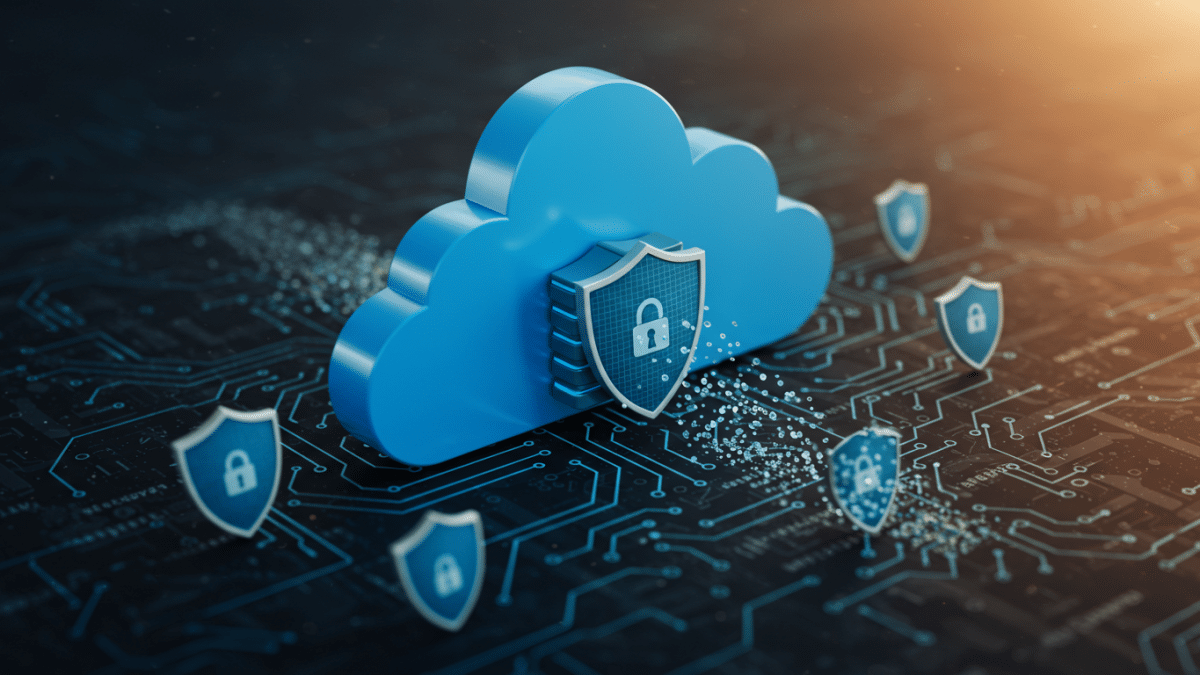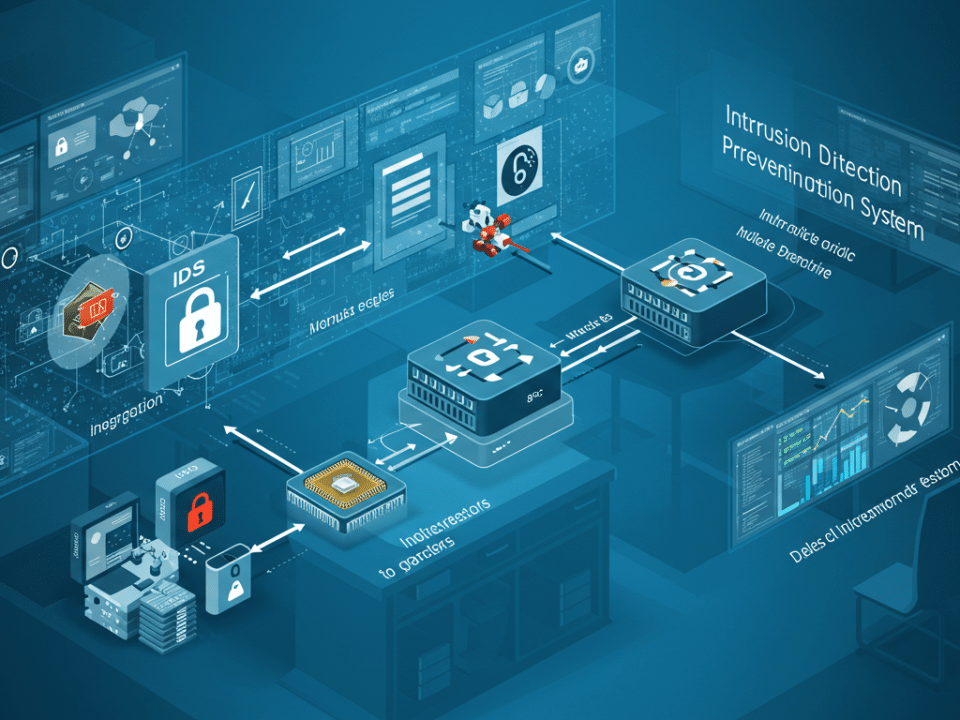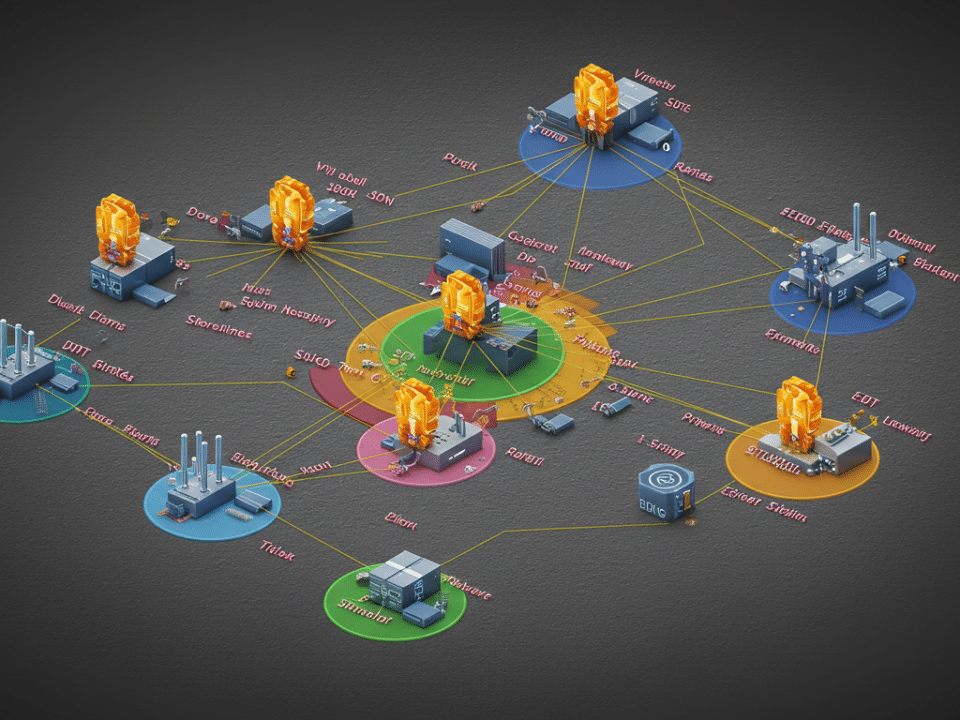
Smarter Social Engineering: Is Your SMB Ready?
April 5, 2025Securing Your Business in the Cloud: Best Practices
The shift to the cloud has revolutionized how small to medium-sized businesses (SMBs) operate, offering scalability, flexibility, and cost-efficiency. Platforms like Amazon Web Services (AWS), Microsoft Azure, and Google Cloud Platform (GCP) provide powerful tools, but they also introduce new security complexities. For SMBs in Houston and beyond, understanding and implementing robust cloud security measures is no longer optional – it’s essential for survival.
At Krypto IT, we understand that navigating the intricacies of cloud security can be daunting. That’s why we’ve put together this guide to highlight best practices and common challenges in securing your cloud networks, specifically tailored for SMBs.
Understanding the Shared Responsibility Model
A crucial concept in cloud security is the shared responsibility model. Cloud providers like AWS, Azure, and GCP are responsible for the security of the cloud infrastructure itself – the physical data centers, networking, and foundational services. However, you, the customer, are responsible for the security in the cloud – your data, applications, configurations, and user access. Many SMBs mistakenly believe their cloud provider handles all security, leading to vulnerabilities.
Key Best Practices for Securing Your Cloud Networks:
- Implement Strong Identity and Access Management (IAM):
- Multi-Factor Authentication (MFA): Enforce MFA for all user accounts, especially administrative ones. This adds an extra layer of security beyond passwords.
- Principle of Least Privilege: Grant users only the minimum permissions they need to perform their tasks. Regularly review and revoke unnecessary access.
- Role-Based Access Control (RBAC): Assign permissions based on roles within your organization, simplifying management and reducing the risk of unauthorized access.
- Regular Audits: Periodically review user access and permissions to ensure they are still appropriate.
- Secure Your Data:
- Encryption: Encrypt sensitive data both at rest (stored in the cloud) and in transit (when being transferred). Cloud providers offer various encryption options; choose those that meet your compliance requirements.
- Data Loss Prevention (DLP): Implement DLP tools and policies to prevent sensitive data from leaving your control.
- Regular Backups: Establish automated backup procedures for your critical data and ensure backups are stored securely and can be readily restored. Consider the “3-2-1” backup rule: three copies of your data, on two different storage media, with one copy offsite.
- Network Security Controls:
- Virtual Private Networks (VPNs): Use VPNs to create secure connections between your on-premises network and your cloud environment.
- Firewalls and Security Groups: Leverage the built-in firewall capabilities of your cloud provider (e.g., AWS Security Groups, Azure Network Security Groups, GCP Firewall Rules) to control inbound and outbound traffic. Configure them with the principle of least privilege, allowing only necessary ports and protocols.
- Intrusion Detection and Prevention Systems (IDPS): Consider deploying cloud-based IDPS solutions to monitor network traffic for malicious activity.
- Network Segmentation: Isolate different workloads and environments within your cloud network to limit the impact of a potential security breach.
- Configuration and Vulnerability Management:
- Secure Configuration: Follow security best practices when configuring your cloud resources. Regularly review and harden configurations.
- Vulnerability Scanning: Implement automated vulnerability scanning tools to identify security weaknesses in your applications and infrastructure. Patch vulnerabilities promptly.
- Infrastructure as Code (IaC) Security: If you use IaC tools, ensure your templates and configurations are secure from the outset.
- Monitoring and Logging:
- Centralized Logging: Collect and centralize logs from all your cloud resources for comprehensive visibility.
- Security Information and Event Management (SIEM): Consider using a SIEM system to analyze logs, detect security incidents, and generate alerts.
- Performance Monitoring: Monitor the performance of your cloud resources to detect anomalies that might indicate a security issue.
Common Challenges in Cloud Security for SMBs:
- Lack of Expertise: SMBs often lack dedicated cybersecurity staff with the specialized knowledge required for cloud security.
- Budget Constraints: Implementing comprehensive security measures can be costly, which can be a challenge for smaller businesses.
- Complexity of Cloud Environments: The sheer number of services and configurations offered by cloud providers can be overwhelming.
- Maintaining Compliance: Depending on your industry, you may need to comply with specific regulations (e.g., HIPAA, PCI DSS) that have implications for your cloud security practices.
- Shadow IT: Employees using unauthorized cloud services can introduce significant security risks.
How Krypto IT Can Help Your Houston SMB:
At Krypto IT, we specialize in providing tailored cybersecurity solutions for small to medium-sized businesses in the Houston area. We understand the unique challenges you face and can help you navigate the complexities of securing your cloud networks on AWS, Azure, or GCP. Our services include:
- Cloud Security Assessments: We’ll evaluate your current cloud environment and identify potential vulnerabilities.
- Security Strategy Development: We’ll work with you to develop a comprehensive cloud security strategy aligned with your business goals and compliance requirements.
- Implementation and Configuration: Our expert team can help you implement and configure the necessary security controls on your chosen cloud platform.
- Managed Security Services: We offer ongoing monitoring, threat detection, and incident response services to ensure your cloud environment remains secure.
- Security Awareness Training: We can educate your employees on cloud security best practices to reduce the risk of human error.
Take the First Step Towards a Secure Cloud:
Don’t let the complexities of cloud security leave your business vulnerable. Contact Krypto IT today for a free, no-obligation consultation. Let our experienced team help you build a secure and resilient cloud environment so you can focus on what you do best – growing your business.
#CloudSecurity #Cybersecurity #SMBsecurity #HoustonTech #KryptoIT #AWSSecurity #AzureSecurity #GCPSecurity #DataProtection #ManagedServices




